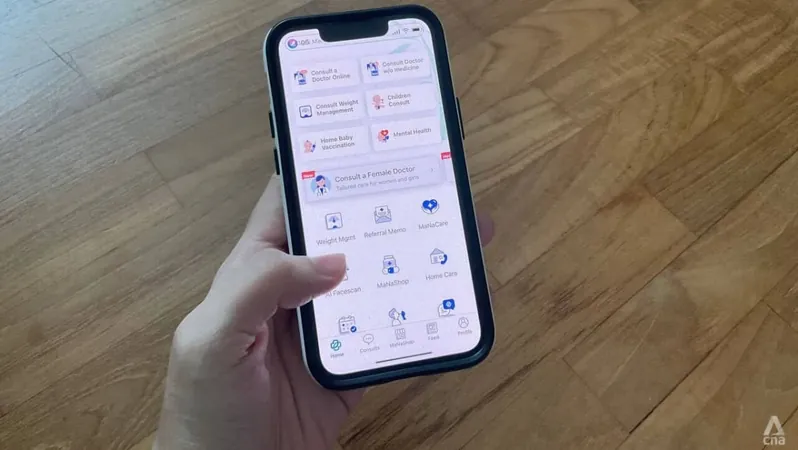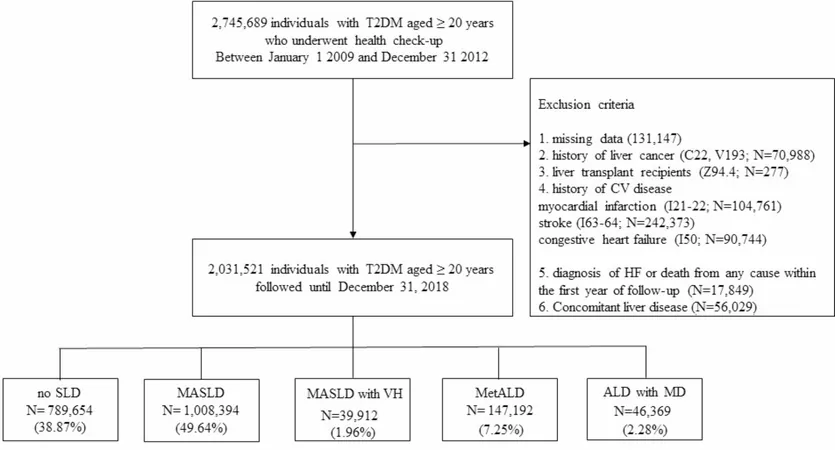
Telemedicine Takes a Hit: Doctors Expose Rising Abuse of Medical Certificates
2024-11-03
Author: Mei
Introduction
In a concerning trend, telemedicine doctors in Singapore have begun to speak out regarding the rampant abuse of medical certificates (MCs) by patients seeking to take advantage of remote consultations. The challenges surrounding this issue were heightened recently when the Ministry of Health announced its decision to revoke the license of MaNaDr Clinic, along with allegations of malpractice against 41 of its doctors.
Allegations and Malpractice
These allegations stem from various breaches, including overly short teleconsultations, frequent issuance of MCs to the same individuals, and inadequate documentation practices. As telehealth continues to gain popularity, the medical community is grappling with how to address these abuses effectively.
Doctors' Experiences
Two doctors, who preferred to remain anonymous, highlighted cases where patients become irate when they are not granted an MC. “I've encountered patients who outright claim they are just 'clearing MCs',” one doctor, who has worked with multiple telemedicine platforms, shared. “Some even log on from overseas but insist they are unwell and in Singapore.”
Pressure on Doctors
The pressure to appease these patients can be intense since a refusal to issue an MC can lead to complaints that affect a doctor’s ratings and income. “After asking a patient about their symptoms, he abruptly hung up on me, leading to a complaint full of falsehoods,” one doctor recounted. Such incidents create a challenging environment for practitioners, who must balance patient demands with ethical medical practice.
Avoiding Annual Leave
In addition to verbal arguments during consultations, it has been reported that some patients attempt to avoid using their annual leave by seeking MCs through telehealth apps. One doctor estimated that 10 to 15% of her patients fit this category of malingerers. “While some may feel sympathy and waive fees, I believe that if a consultation has occurred, then payment is necessary, regardless of the outcome,” she asserted.
Challenges Faced
The crushing workload inherent in telemedicine also exacerbates these issues. Healthcare providers experience high caseloads, making it difficult to manage time effectively during consultations. With patients constantly calling, doctors find themselves unable to take necessary breaks. “It can be overwhelming when the administrative team questions missed calls or delays, especially if a doctor is already under pressure from demanding patients,” one doctor lamented.
Implementation of Stricter Protocols
In response to these abuses, telemedicine apps are starting to implement stricter protocols. Companies like Speedoc and Fullerton Health are enhancing their surveillance of MC issuance, conducting audits to ensure compliance with professional and regulatory standards. Speedoc’s CEO, Dr. Shravan Verma, emphasized the importance of recommending in-person consultations for patients who frequently return for virtual consultations about unresolved health issues.
Skepticism Among Doctors
However, some doctors remain skeptical of these measures. A physician acknowledged that while alerts for repeated visits can be beneficial, they only work if patients use the same platform for their consultations. Many patients might switch platforms, making it difficult for doctors to track abuse without patient honesty.
Conclusion
As telehealth continues to evolve, the medical community faces an uphill battle against misuse. Doctors stress the need for accountability among patients who falsify their ailments to exploit the telehealth system. “Ultimately, those who manipulate the system need to face consequences for their actions,” one doctor concluded. With the telemedicine landscape still developing, it remains crucial for both providers and patients to adhere to ethical practices, ensuring that technology serves its intended purpose: improving healthcare access without compromising integrity.



 Brasil (PT)
Brasil (PT)
 Canada (EN)
Canada (EN)
 Chile (ES)
Chile (ES)
 España (ES)
España (ES)
 France (FR)
France (FR)
 Hong Kong (EN)
Hong Kong (EN)
 Italia (IT)
Italia (IT)
 日本 (JA)
日本 (JA)
 Magyarország (HU)
Magyarország (HU)
 Norge (NO)
Norge (NO)
 Polska (PL)
Polska (PL)
 Schweiz (DE)
Schweiz (DE)
 Singapore (EN)
Singapore (EN)
 Sverige (SV)
Sverige (SV)
 Suomi (FI)
Suomi (FI)
 Türkiye (TR)
Türkiye (TR)